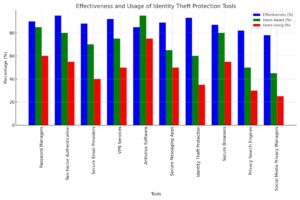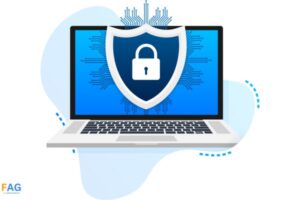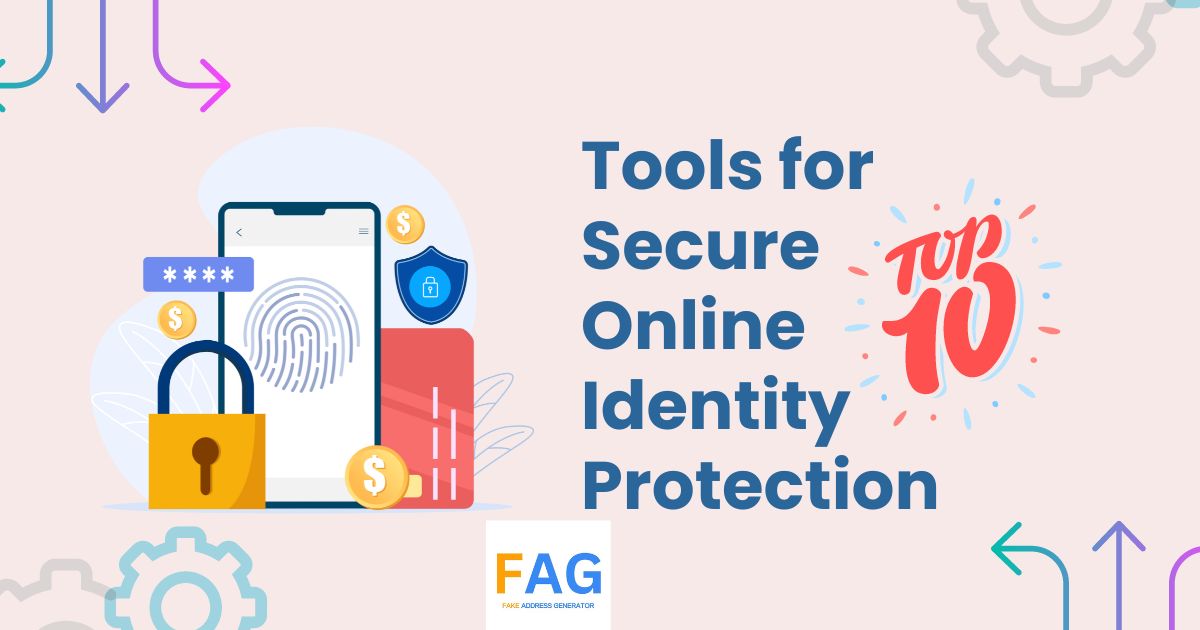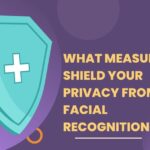Online identity theft is a growing concern, making identity theft protection services and awareness crucial. With more personal data stored online and on apps, protecting oneself from cybercriminals is essential. Fortunately, several tools can help safeguard online identity.
One effective tool is a password manager, which generates and stores strong, unique passwords for each account. This reduces the risk of weak passwords and phishing attacks. Another essential tool is two-factor authentication (2FA), adding an extra layer of security by requiring a second verification form, such as a fingerprint or code. This makes it harder for cybercriminals to access accounts, even if they have the password.

The bar graph shows the effectiveness, user awareness, and active usage of top identity theft protection tools. It highlights the importance of tools like password managers and two-factor authentication. The graph helps visualize how well users know and use these tools to protect their online identity.
Top 10 Tools for Secure Online Identity Protection

As cyber threats continue to rise, online identity protection has become more important than ever. This section will discuss the top 10 tools for secure online identity protection.
1. Password Managers
Password managers are a crucial tool for online security. They help users generate strong passwords and store them securely. Some popular password managers include LastPass, 1Password, and Dashlane. These tools provide a convenient and secure way to manage passwords across multiple devices.
2. Two-Factor Authentication Apps
Two-factor authentication (2FA) adds an extra layer of security to online accounts and is a vital protection against identity fraud. It requires users to provide two forms of identification to access their accounts. Popular 2FA apps include Google Authenticator, Authy, and Duo Mobile. These apps generate a unique code that users must enter with their password to log in, serving as an important tool against signs of identity theft.
3. Secure Email Providers
Secure email providers encrypt emails to protect them from interception and hacking. Some popular, secure email providers include ProtonMail, Tutanota, and Hushmail. These providers offer end-to-end encryption, meaning only the sender and recipient can read the message, a key component of an ID theft protection service.
4. VPN Services
VPN services encrypt internet traffic to protect users’ online privacy. They also allow users to access geo-restricted content and bypass internet censorship. Some popular VPN services include ExpressVPN, NordVPN, and CyberGhost. These services provide a secure and private connection to the internet and act as a crucial protection feature against hackers.
5. Antivirus and Anti-Malware Software
Antivirus and anti-malware software protect computers and mobile devices from viruses and malware. Some popular antivirus and anti-malware software, such as McAfee and Kaspersky, are essential in providing identity theft insurance. These tools scan devices for malicious software and remove them to prevent damage.
6. Secure Messaging Apps
Secure messaging apps encrypt messages to protect them from interception and hacking. Some popular secure messaging apps include Signal, WhatsApp, and Telegram, which are crucial for maintaining the privacy necessary to protect your identity from potential identity thieves. These apps provide end-to-end encryption, which means only the sender and recipient can read the message, a vital component of identity theft protection.
7. Identity Theft Protection Services
Identity theft protection services monitor credit reports and alert users to suspicious activity, acting as a key component in recovery from identity theft. Some popular services include IdentityForce, LifeLock, and Experian. These services help users detect and prevent identity theft.
8. Secure Browsers
Secure browsers protect users’ online privacy by blocking tracking cookies and other online trackers, contributing to identity guard measures. Some popular, secure browsers include Mozilla Firefox, Google Chrome, and Brave, which can be pivotal in preventing identity theft when combined with identity monitoring services. These browsers provide a private and secure browsing experience.
9. Privacy Search Engines
Privacy search engines protect users’ online privacy by not tracking their search history. Some popular privacy search engines include DuckDuckGo, StartPage, and Qwant. These search engines provide a private and secure search experience.
10. Social Media Privacy Managers
Social media privacy managers help users manage their privacy settings on social media platforms. Some popular social media privacy managers include MyPermissions, Jumbo, and PrivacyFix. These tools help users control what personal information is shared on social media.
In conclusion, these top 10 tools for secure online identity protection provide a convenient and secure way to protect users’ online privacy and security, including offering the best identity theft protection services. Using these tools, users can protect themselves from cyber threats and enjoy a safe and secure online experience, ensuring the best identity theft protection.
Effectiveness, Awareness, and Usage Statistics of Identity Theft Protection Tools
| Tool | Effectiveness (%) | Users Aware of Tool (%) | Users Actively Using Tool (%) |
|---|---|---|---|
| Password Managers | 90 | 85 | 60 |
| Two-Factor Authentication | 95 | 80 | 55 |
| Secure Email Providers | 88 | 70 | 40 |
| VPN Services | 92 | 75 | 50 |
| Antivirus Software | 85 | 95 | 75 |
| Secure Messaging Apps | 89 | 65 | 50 |
| Identity Theft Protection | 93 | 60 | 35 |
| Secure Browsers | 87 | 80 | 55 |
| Privacy Search Engines | 82 | 50 | 30 |
| Social Media Privacy Managers | 78 | 45 | 25 |
Using These Tools Effectively
Using the right tools, including security software, to secure online identities and mitigate identity theft risk is essential. However, simply having these tools is not enough. It is also important to use them effectively to maximize their potential and ensure top-notch identity theft insurance. This section will discuss some best practices for using these tools, including identity monitoring services, to ensure maximum protection against identity theft.
Combining Tools for Layered Security

While password managers are a great tool, they should not be the only tool for securing online identities. Combining multiple tools can provide layered security, making it more difficult for attackers to steal your identity. Some tools that can be combined for layered security include mobile apps that alert users to security breaches.
- Identity Protection Services and Security Software: These services monitor credit reports and other databases for suspicious activity and send alerts if any are detected.
- VPN Services: VPN services encrypt internet traffic, making it more difficult for attackers to intercept and steal data.
- Antivirus Software: Antivirus software detects and prevents viruses from infecting devices, protecting online identities.
By combining tools like password managers, 2FA apps, and identity monitoring services, users can strengthen their defense against cyber threats.
Conclusion
In conclusion, protecting online identity is crucial in today’s digital age to prevent identity theft. Using top tools for secure identity protection, like identity recovery services, helps keep personal information safe. Key practices include using strong passwords, two-factor authentication, VPNs, and monitoring credit reports while being cautious of phishing scams.
The future of online identity protection will involve advancements like biometric authentication and machine learning to detect fraud. Staying informed about trends and best practices is essential. By using these tools, individuals can safeguard their information and protect against cyber-attacks.
Frequently Asked Questions
What are the top-rated identity theft protection services currently available?
Top-rated identity theft protection services include IdentityForce UltraSecure+Credit, LifeLock Ultimate Plus, and Norton 360 with LifeLock, offering comprehensive measures like credit monitoring, dark web monitoring, and social security number monitoring.
Which free tools are recommended for enhancing online privacy protection?
Free tools like uBlock Origin for ad-blocking, HTTPS Everywhere for encrypting web traffic, and Signal for secure messaging enhance online privacy protection, though they may not provide as comprehensive protection as paid services.
How does Bitdefender Digital Identity Protection compare to other identity security tools?
Bitdefender Digital Identity Protection offers features like credit monitoring, dark web monitoring, identity monitoring, social media monitoring, a VPN for secure browsing, and a password manager, making it a comprehensive and user-friendly tool.
What are the most effective strategies to safeguard personal information on the internet?
Effective strategies include using strong, unique passwords, enabling two-factor authentication, avoiding public Wi-Fi, and keeping software updated, while being cautious when sharing personal information online.










